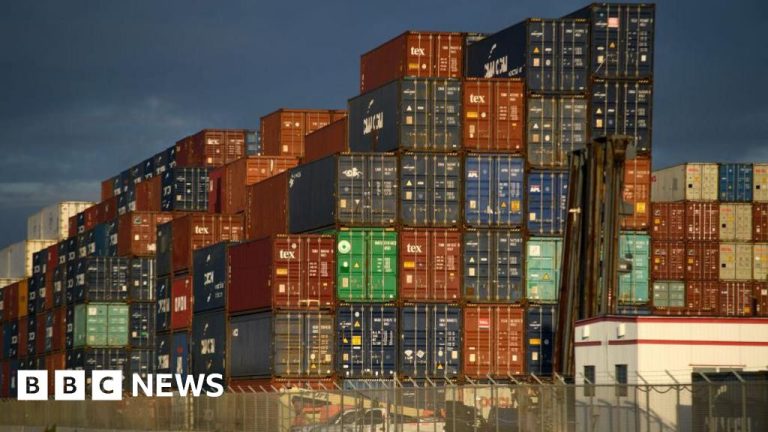The UK could face a £22 billion loss on its exports if Donald Trump imposed blanket 20% tariffs on all imports into the US, according to a new analysis.
Britain's exports to the world could fall by more than 2.6% due to falling trade with the United States and global knock-on effects, economists at the Center for Inclusive Trade Policy (CITP) have said. University of Sussex.
This fall could come if the president-elect keeps his repeated campaign promise to levy a 20% tax on all imports and 60% tariffs on Chinese imports.
The decline in trade would equate to an annual impact of 0.8% on UK economic output.
Although Trump's aggressive promises could be a negotiating tactic, “the possibility of these tariffs being imposed is certainly there,” researcher Nicolo Tamberi said in a blog post.
The main UK sectors likely to be affected are fishing, oil and mining, whose exports could fall by around a fifth.
The pharmaceutical and electrical sectors would also be affected.
Even companies that are not exporters themselves could be affected.
For example, companies providing transport services, which depend on significant trade flows, would suffer.
Insurance and financial services also support the underlying commodity trade.
However, certain sectors could benefit from a reduction in Chinese exports to the United States.
Textiles and apparel could see gains due to reduced competition, if Chinese exports are hit by much higher tariffs from Trump.
It's unclear how big border tax increases will be under Donald Trump. Some diplomats have floated more pragmatic suggestions for lighter tariffs for U.S. allies.
But Trump's top trade adviser, former trade representative Robert Lighthizer, is a strong supporter of the tactic.
Foreign Secretary David Lammy recently told the BBC's Newscast podcast: “We will seek to ensure and make clear to the United States – and I think they will understand this – that harming your closest allies cannot not be your medium or long term goal. interests, regardless of the pursuit of public policy in relation to some of the problems posed by China.
But the British ambassador to the US under the previous Trump administration, Lord Darroch, warned that the UK should not underestimate the risks.
“I'm pessimistic,” he told BBC Newsnight on Thursday. “Trump imposed tariffs during his first term on steel and aluminum. He wants to go even further this time. He believes in it, it's not a bluff. I think he will do it. ”
Chancellor Rachel Reeves and Bank of England Governor Andrew Bailey have both said they will continue to make the case for free trade.
The UK could be in the position of having to choose whether to strike a side deal with the Trump White House to avoid tariffs.
The UK could also join other Western and European allies in sending a clear message to Trump and the US Congress that US exporters would also be hit hard by such policies.
The CITP figures only assume that the United States sets tariffs on the world, and do not assume likely trade retaliation from Europe or Asia.
The IMF recently warned that a full-scale trade war would drive up inflation and cause the global economy to contract by 7%, the size of the French and German economies combined.

